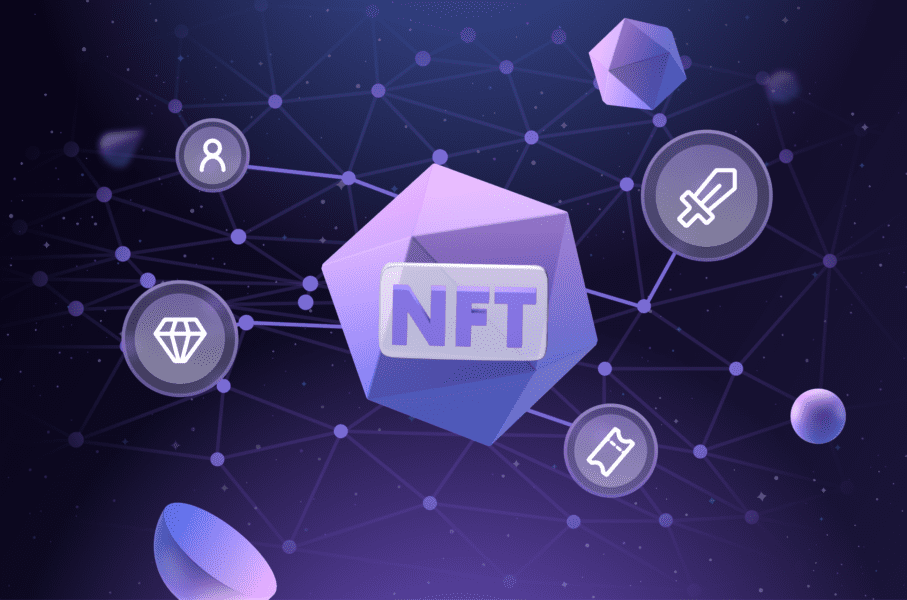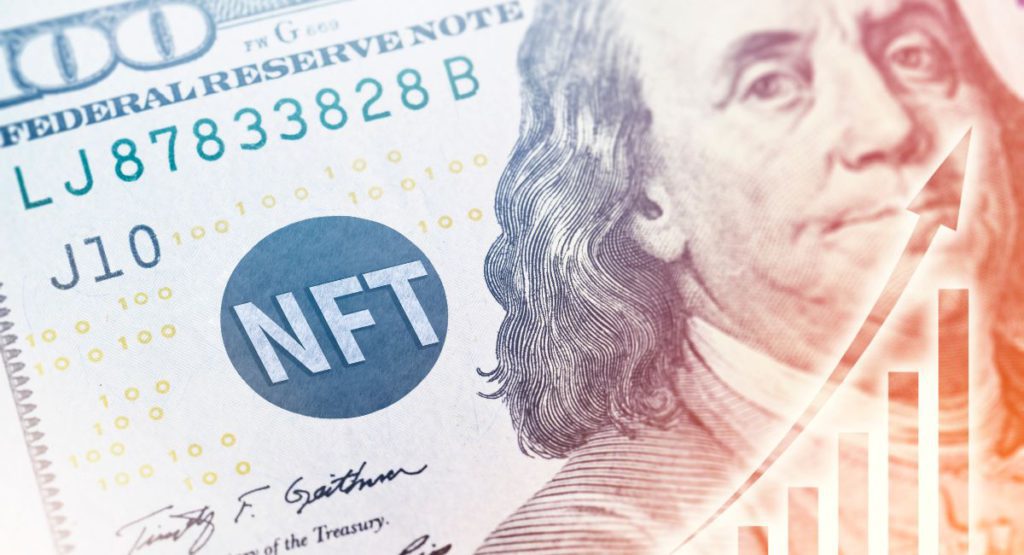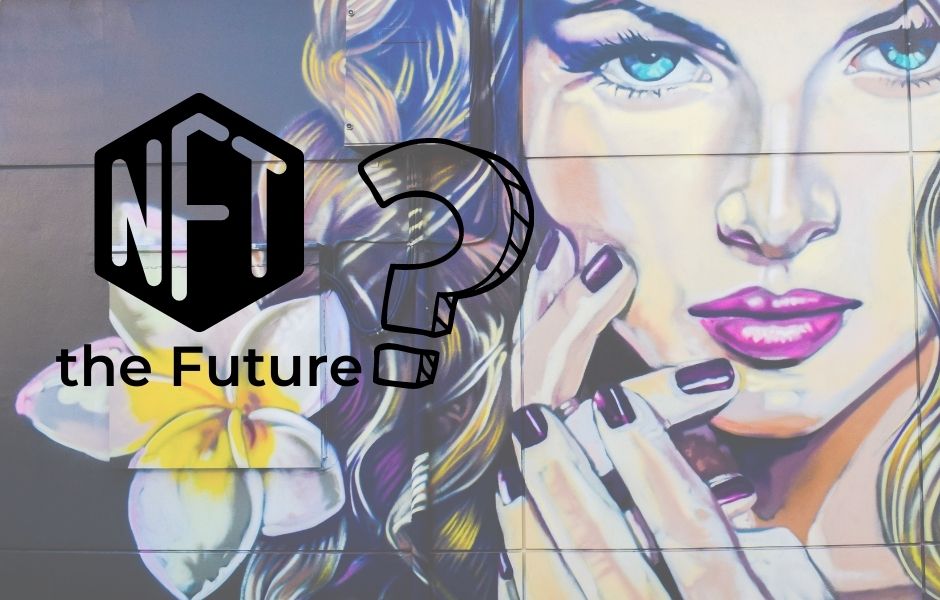In the ever-evolving landscape of investment opportunities, Non-Fungible Tokens (NFTs) have emerged as a transformative force. NFTs, unique digital assets that represent ownership or proof of authenticity of digital or physical items, have captured the imagination of both collectors and investors. As NFT millionaires continue to emerge, it’s no wonder that many are looking to
In the ever-evolving landscape of investment opportunities, Non-Fungible Tokens (NFTs) have emerged as a transformative force. NFTs, unique digital assets that represent ownership or proof of authenticity of digital or physical items, have captured the imagination of both collectors and investors. As NFT millionaires continue to emerge, it’s no wonder that many are looking to NFTs as the future of investment. In this article, we’ll explore the dynamic world of NFT investment, where innovation and diversity promise to create the next wave of millionaires.
NFTs: A Brief Overview

Non-Fungible Tokens (NFTs) have taken the concept of digital ownership to new heights. Unlike cryptocurrencies like Bitcoin or Ethereum, which are fungible and interchangeable, NFTs are unique and indivisible. Each NFT is one-of-a-kind and is securely recorded on a blockchain, providing proof of authenticity and ownership. NFTs can represent a wide range of digital and physical assets, including digital art, music, virtual real estate, collectibles, tweets, domain names, and more.
NFT Investment: The Current Landscape

NFT investment has gained substantial momentum in recent years. NFTs have become a platform for creators, artists, and musicians to monetize their digital content. Investors have recognized the potential for substantial returns on NFTs, leading to a surge in the buying and trading of these unique tokens.
Here are some key aspects of the current NFT investment landscape:
- Digital Art NFTs: Digital art NFTs have set the stage for NFT investment, with artists like Beeple, CryptoPunks, and Pak selling their digital artworks for millions. The transparency and provenance that blockchain technology offers have boosted the appeal of digital art NFTs.
- Music and Entertainment: Musicians and celebrities have embraced NFTs, offering exclusive music, collectibles, and experiences to their fans. This fusion of entertainment and blockchain technology has created new investment opportunities.
- Virtual Real Estate: Virtual real estate in decentralized virtual worlds like Decentraland and The Sandbox has become a unique NFT investment avenue. Investors purchase virtual land, anticipating its appreciation in value as these metaverses continue to grow.
- Social Media and Tweets: Even social media content, like tweets, has been sold as NFTs. Twitter founder Jack Dorsey’s first tweet was auctioned as an NFT, showcasing the diverse range of assets that can be tokenized and traded.
- Gaming and Collectibles: NFTs are revolutionizing the gaming industry, with blockchain-based collectible card games like Axie Infinity gaining popularity. Gamers and collectors invest in NFTs within these virtual worlds, sometimes generating substantial returns.
- Virtual Fashion and Wearables: Virtual fashion NFTs allow users to own and showcase unique digital garments and accessories within the metaverse. These NFTs are not just fashion statements but also investment assets.
The Future of NFT Investment: Where Opportunities May Emerge

The NFT investment landscape is far from stagnant. It continues to evolve, presenting opportunities and challenges. Here are some key areas where the next wave of NFT millionaires may emerge:
- Niche Markets: As the NFT ecosystem grows, niche markets are emerging. These can range from virtual pets and unique virtual items in video games to specialized digital collectibles. Investors who identify and engage in these niches early may see substantial returns.
- Blockchain Domains: Blockchain domain NFTs, which represent ownership of specific domain names related to cryptocurrencies or blockchain projects, are gaining popularity. These domain names have the potential to appreciate significantly, offering investment opportunities.
- Metaverse and Virtual Reality: As the metaverse and virtual reality technologies advance, NFTs within these digital realms become more valuable. NFT investors may focus on virtual real estate, in-game assets, avatars, and immersive experiences within the metaverse.
- Emerging Artists and Creators: Emerging artists and creators entering the NFT space have the potential to create valuable and unique NFTs. Collectors who identify promising talent early can benefit from the appreciation of these artists’ works.
- DeFi and NFT Integration: The integration of NFTs with decentralized finance (DeFi) is a growing trend. It allows NFT holders to leverage their assets for additional financial opportunities, potentially increasing the value of their investments.
- Innovation in Blockchain Technology: Advancements in blockchain technology can introduce new types of NFTs and use cases. For example, advancements in blockchain scalability and energy efficiency can unlock new possibilities for NFT investments.
Also, read – Top 10 NFT Success Stories To Boost You For NFT Investment
Challenges and Caution

While the allure of NFT investment is undeniable, it is crucial to approach this burgeoning market with a keen awareness of the challenges and potential pitfalls that exist. NFTs have the power to create millionaires, but they can also lead to substantial financial losses if investors are not cautious. Here are some key challenges and factors to exercise caution in NFT investment:
1. Market Speculation and Volatility:
The NFT market is driven by speculation and often exhibits high levels of volatility. Prices of NFTs can fluctuate dramatically in a short period. While some NFTs have sold for astronomical sums, not all NFTs appreciate in value. Investors should be prepared for the potential of significant price fluctuations, both upward and downward.
2. Overhyped NFTs:
There is a risk of overhyped or overvalued NFTs in the market. Some NFTs may gain attention and press coverage, leading to inflated prices. It’s essential for investors to critically evaluate the value and potential of an NFT rather than solely relying on hype.
3. Authenticity and Provenance:
Ensuring the authenticity and provenance of an NFT is critical. While blockchain technology provides transparency and a verifiable history of ownership, counterfeit or fraudulent NFTs can still emerge. Investors should do their due diligence to confirm the legitimacy of the NFT and the creator behind it.
4. Copyright and Ownership Concerns:
NFT ownership may not always equate to copyright ownership. Buyers should be aware that owning an NFT doesn’t necessarily grant them the rights to the underlying content. Creators may retain copyright and licensing rights, which can impact how NFTs are used and resold.
5. Regulatory and Legal Issues:
The NFT market is still evolving, and regulatory frameworks can be uncertain or subject to change. Investors should be aware of the legal implications of NFT ownership, taxation, and compliance with regional laws. Some countries may impose specific rules and regulations regarding NFTs.
6. Investment Diversification:
Investing heavily in a single NFT or asset class can be risky. Diversifying your NFT portfolio can help mitigate risks associated with the potential devaluation of a particular asset. Spreading investments across various NFTs and asset categories can provide a more balanced and risk-conscious approach.
7. Ethical and Environmental Considerations:
NFTs built on certain blockchain networks, such as Ethereum, have raised concerns about their environmental impact due to energy-intensive mining processes. Additionally, ethical considerations have arisen, particularly regarding the environmental consequences of minting NFTs.
8. Market Saturation:
The NFT market is becoming increasingly crowded, with a vast array of assets and creators vying for attention. As the market becomes saturated, it can become more challenging to identify unique and valuable NFTs amid the noise.
9. Scalability and Infrastructure:
Blockchain networks supporting NFTs may face challenges related to scalability and infrastructure. Congestion on popular networks can lead to high transaction fees and delays, affecting the user experience and the overall value of NFTs.
10. Long-Term Viability:
NFT investment should consider the long-term viability of the asset. Will the NFT maintain its value over time, or is it a short-lived trend? Evaluating the durability and staying power of an NFT is essential for making sound investment decisions.
In conclusion, NFT investment is poised to reshape the future of wealth creation. The diversity and innovation within the NFT space offer endless possibilities for collectors and investors. From digital art and virtual real estate to blockchain domains and emerging creators, NFT investment opportunities continue to expand, attracting a new generation of NFT millionaires. As the NFT ecosystem evolves, staying informed and taking calculated risks will be the key to reaping the rewards of this dynamic and exciting investment landscape.
The biggest challenge in an #NFTgame project is serving the interests of both #gamers & #investors. It can be a balancing act but I believe there’s a way to find the perfect harmony 🔥💰 #NFT #Gaming #Investment #Mocossi
— Anthony.Mocossi (@AnthonyMocossi) February 5, 2023
FAQs About NFT Investment
What is an NFT investment?
An NFT investment refers to the acquisition and ownership of Non-Fungible Tokens (NFTs) with the expectation of potential financial gain. NFTs are unique digital assets that are typically built on blockchain technology. They represent ownership or proof of authenticity of digital or physical items, such as digital art, music, virtual real estate, and more. Investing in NFTs involves purchasing these digital tokens with the anticipation that their value will appreciate over time, allowing investors to sell them at a profit.
2. Is it worth investing in NFTs?
Whether investing in NFTs is worth it depends on several factors, including the specific NFT, the NFT market’s current conditions, and an investor’s risk tolerance and objectives. NFTs have the potential to generate significant returns, but they also carry risks due to market volatility and speculative nature. It’s essential for potential investors to conduct thorough research, understand the market, and carefully evaluate NFTs before making investment decisions. Diversifying your NFT portfolio and approaching NFT investment with caution can increase the chances of success.
3. Is NFT legal in India?
As of my last knowledge update in January 2022, the legal status of NFTs in India was relatively uncertain. The Indian government had not introduced specific regulations regarding NFTs. It’s important to note that legal frameworks can evolve over time. Individuals interested in NFT investment in India should stay informed about any regulatory developments and consider consulting legal experts for the most up-to-date information on NFT legality and taxation.
4. Is NFT actually profitable?
The profitability of NFT investments varies widely and is contingent on several factors, including the chosen NFT, market conditions, timing, and the overall demand for the asset. Some NFTs have sold for significant sums, resulting in substantial profits for their owners. However, not all NFTs appreciate in value, and some may even lose value. Profitability in the NFT space can be uncertain, and potential investors should approach it with caution and a well-informed strategy. Conducting thorough research, diversifying investments, and understanding the specific NFT market are essential steps to maximize the potential for profitability.







